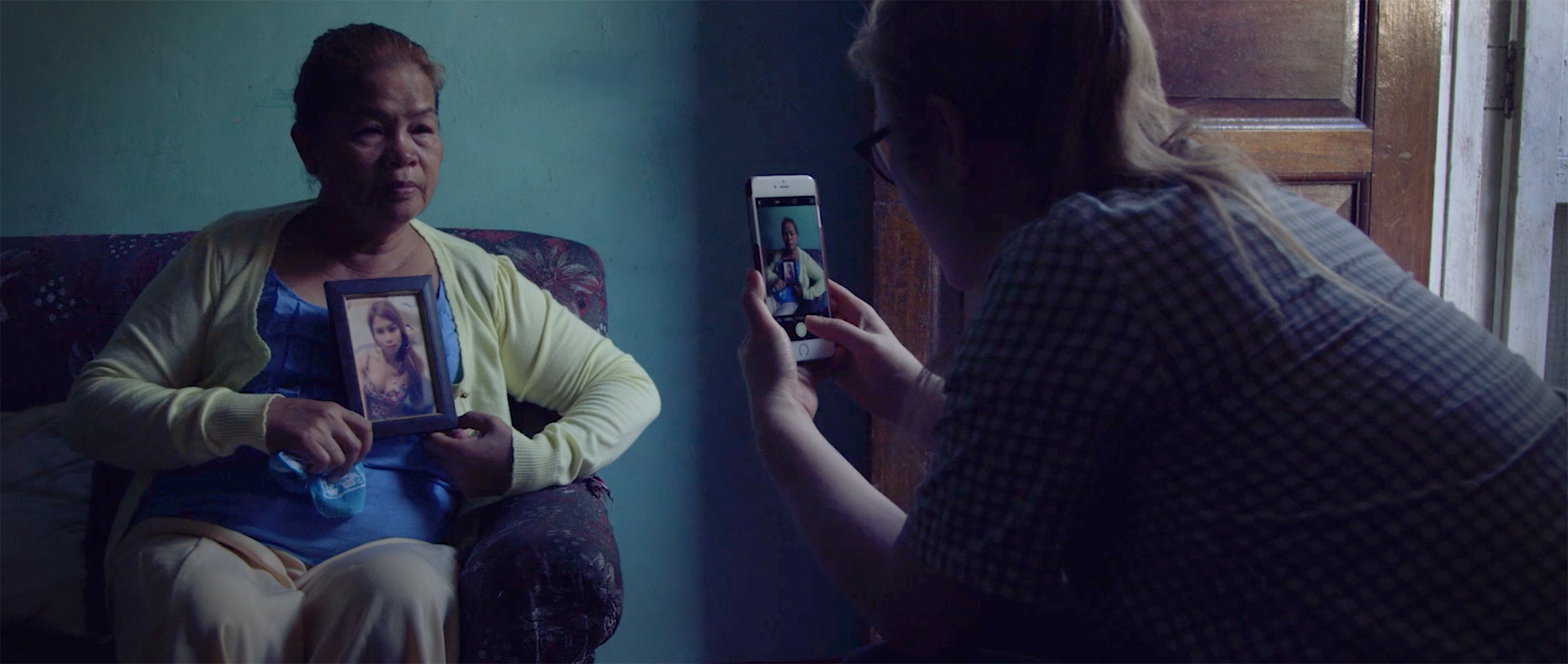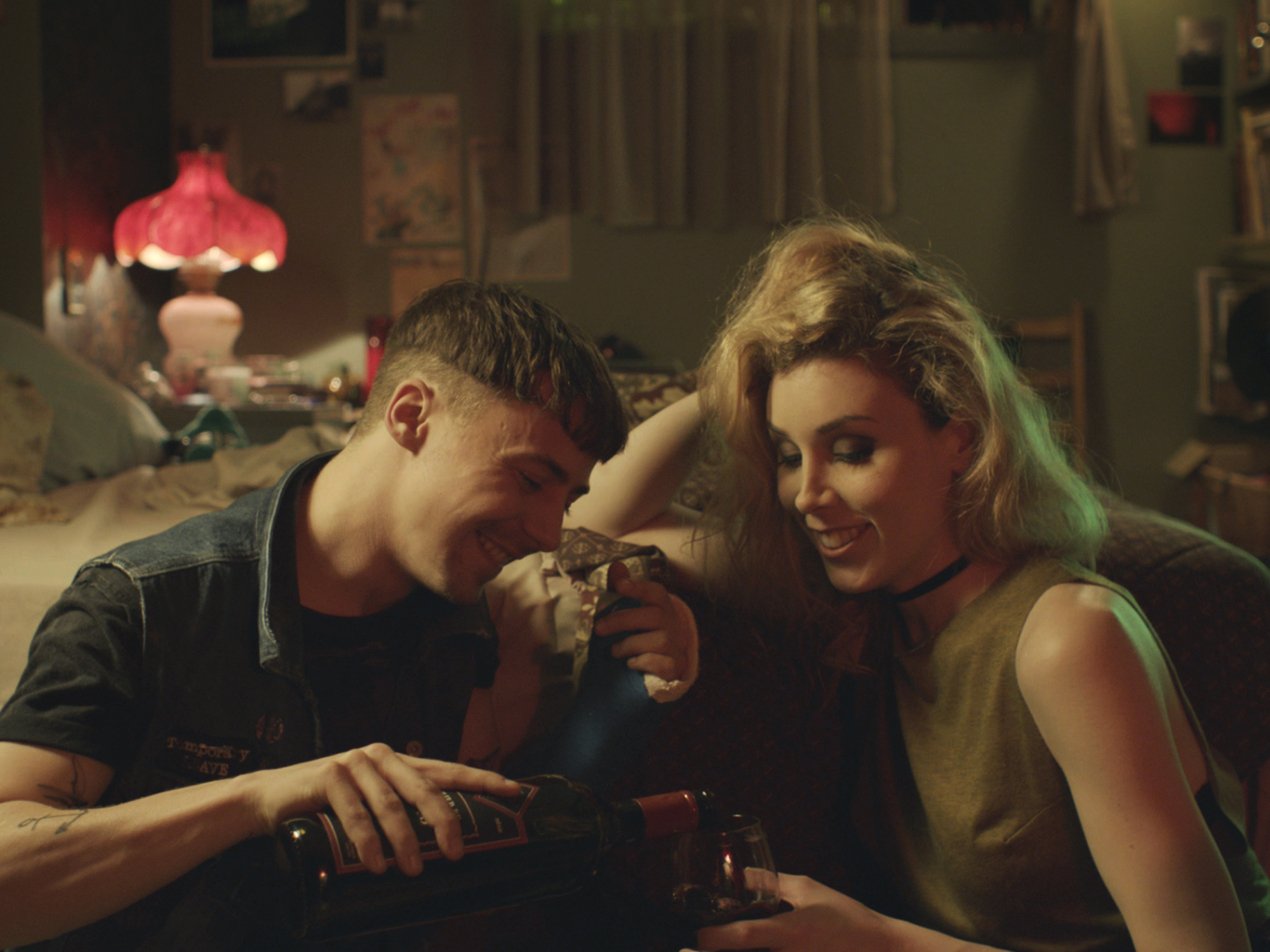This content was created by Xtra’s branded content team alongside the Vancouver Queer Film Festival, separate from Xtra’s editorial staff.
According to GLAAD’s Annual Report on LGBTQ Inclusion, transgender characters accounted for only only 16 of all 278 regular and recurring LGBTQ characters on cable and streaming programs between 2016 and 2017. That’s about six percent.
With this in mind the artistic directors of the Vancouver Queer Film Festival (VQFF), Amber Dawn and Anoushka Ratnarajah, made a commitment to not feature cisgender actors in trans roles.
“In terms of our festival, so many more films this year put trans women front and centre, most as actors, and even as directors,” Ratnarajah says.
Exemplified by the Scarlett Johansson casting controversy earlier this year, the few trans roles that do exist are often given to cisgender actors, with trans actors being relegated to secondary roles or erased altogether. This harmful practice speaks to longstanding misogyny and transphobia in the industry as well as the lack of opportunities for trans actors to bring authentic experiences and representation to screens.
In contrast, the VQFF’s program this year spotlights trans women on screen. The film Freelancers Anonymous, which Ratnarajah encourages audiences to see, casts Alexandra Billings as a start-up boss. Her gender is not discussed or questioned as she plays the charismatic character Janey. “Billings just plays a really fun character!” Ratnarajah adds.
A documentary that Ratnarajah is also excited for audiences to see is Call Her Ganda. It’s an incredibly poignant and moving documentary that follows three women involved in the murder case of Filipina trans woman Jennifer Laude, who was killed by a US Marine.

Still from Call Her Ganda Credit: Courtesy Out On Screen
Audiences hear from her mother, who is relentless in her pursuit of justice; trans American-Filipina journalist Meredith Talusan; and the family’s lawyer Virgie Suarez. Call Her Ganda also challenges the Visiting Forces Agreement, which dictates that the US government retains jurisdiction over military personnel accused of crimes in the Philippines.
“It’s a really, really beautiful documentary and the director, PJ Raval, will actually be at the film’s screening,” says Ratnarajah.
Freelancers Anonymous and Call her Ganda, two very different films centring trans women, illuminate the range of stories that trans women can tell — stories that are becoming increasingly prevalent as a result of activism around trans representation in the film industry.
“While trans activism has always been around since the beginning of watershed moments of queer North American history like Stonewall, trans women have always been elders and builders of queer social justice movements,” Ratnarajah says, “but we have definitely seen more of it widespread, more mainstream recently.”
This increase in trans representation is probably most obvious in shows like Transparent and Orange is the New Black.
“We have women like Laverne Cox who is vocal about trans activism, sort of galvanizing for equity and representation in casting for film and television,” Ratnarajah says.
The advocacy for trans rights within the broader spectrum of social justice as well as representation in the film industry is leading to what Ratnarajah considers a more nuanced and genuine representation of trans and genderqueer actors on screen.
In the same vein, the VQFF’s piece #TransWomenAreBeautiful is a collection of four different short films featuring trans women in leading roles. Prominent New York-based trans activist and filmmaker Reina Gossett contributes two films where she is both on-screen and in the director’s chair with Happy Birthday, Marsha and Atlantic is a Sea of Bones. Other films in #TransWomenAreBeautiful are Fran this Summer, about teenage sweethearts growing closer as one begins her transition over the summer break, and Pre-Drink, a sensitive and seductive drama that won best short film at the 2017 Toronto International Film Festival.
Ratnarajah admits there is still much work that needs to be done.
“There is still long-standing transphobia and misogyny from power-holders in the film industry, which largely rests in the hands of white, straight, and cisgender men,” Ratnarajah says. “Until that changes, we are always sort of held to this same sort of power structure.”
However, Ratnarajah sees more marginalized stories being told on screen and positive reinforcements from audiences who generally want trans women to step into their artistic and creative powers and be given platforms. This is what further compelled her and Amber Dawn to push for more trans women on-screen.
Ratnarajah believes that “even if there is backlash from the conservatives in the arts industry, there will be more films that reflect the realities of trans people, and give trans people jobs in their industry.”
As for the future of the festival?
“It’s cisgendered people’s responsibility to uplift, and more importantly, step back when we need to,” Ratnarajah says. “When a trans woman is the artistic director for Queer Film Festival, I would really be happy.”
Vancouver Queer Film Festival
Aug 9–19, 2018
queerfilmfestival.ca


 Why you can trust Xtra
Why you can trust Xtra